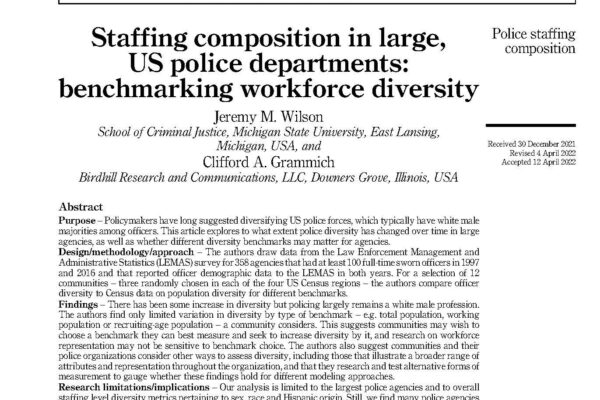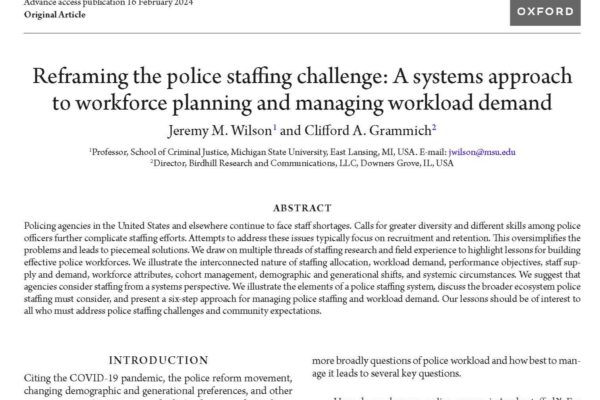Policing agencies in the United States and elsewhere continue to face staff shortages. Calls for greater diversity and different skills among police officers further complicate staffing efforts. Attempts to address these issues typically focus on recruitment and retention. This oversimplifies the problems and leads to piecemeal solutions. We draw on multiple threads of staffing research and field experience to highlight lessons for building effective police workforces. We illustrate the interconnected nature of staffing allocation, workload demand, performance objectives, staff supply and demand, workforce attributes, cohort management, demographic and generational shifts, and systemic circumstances. We suggest that agencies consider staffing from a systems perspective. We illustrate the elements of a police staffing system, discuss the broader ecosystem police staffing must consider, and present a six-step approach for managing police staffing and workload demand. Our lessons should be of interest to all who must address police staffing challenges and community expectations.
Reframing the Police Staffing Challenge: A Systems Approach to Workforce Planning and Managing Workload Demand. Policing: A Journal of Policy and Practice, Vol. 18, 2024.
Featured Research

A Performance-Based Approach to Police Staffing and Allocation
U.S. Department of Justice, Office of Community Oriented Policing Services

Brand Protection and the Global Risk of Product Counterfeits: A Total Business Solution Approach
Edward Elgar Publishing
***WINNER OF THE AMERICAN SOCIETY OF CRIMINOLOGY DIVISION ON WHITE-COLLAR AND CORPORATE CRIME OUTSTANDING BOOK AWARD***

Staffing Composition in Large, US Police Departments: Benchmarking Workforce Diversity
Policing: An International Journal

Reframing the Police Staffing Challenge: A Systems Approach to Workforce Planning and Managing Workload Demand
Policing: A Journal of Police and Practice

Police Recruitment and Selection: Resources And Lessons for Workforce Building
U.S. Department of Justice, Office of Community Oriented Policing Services

